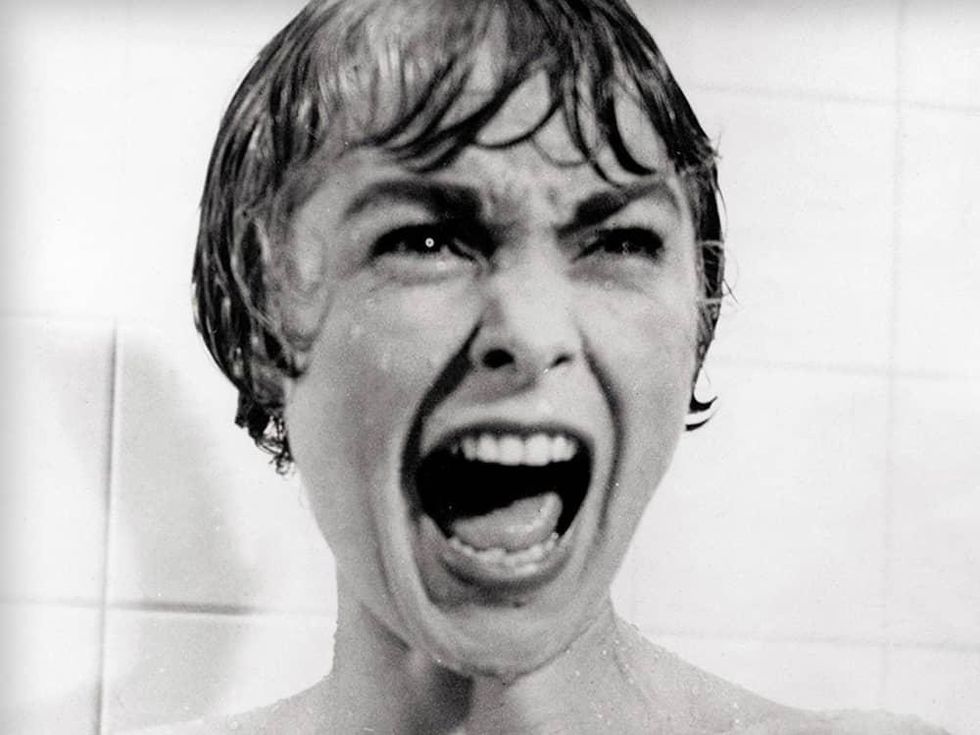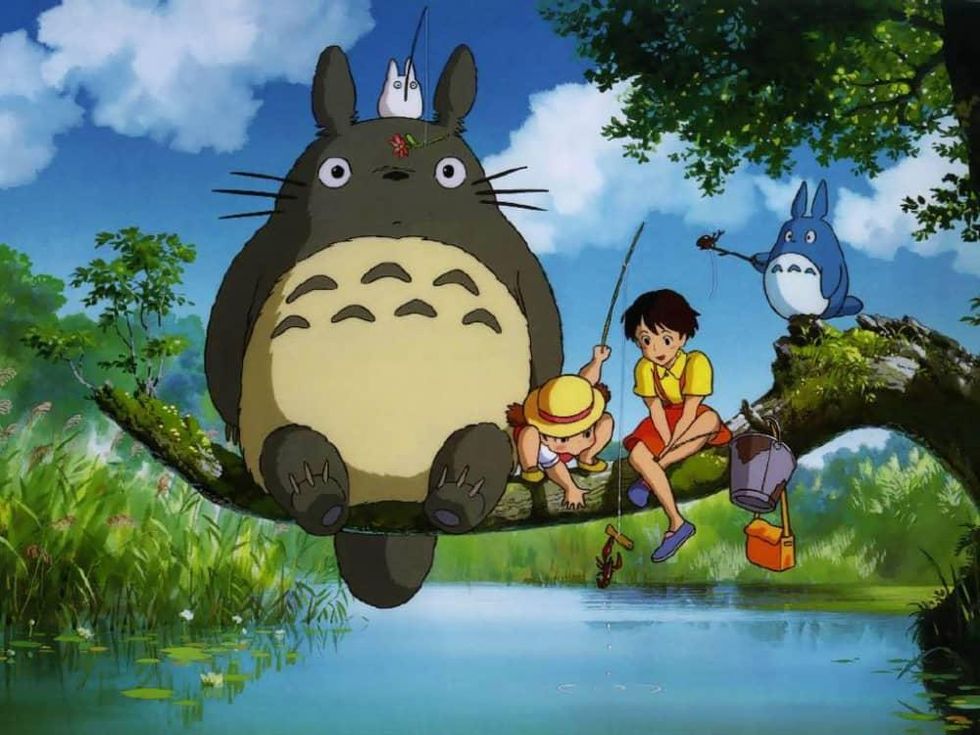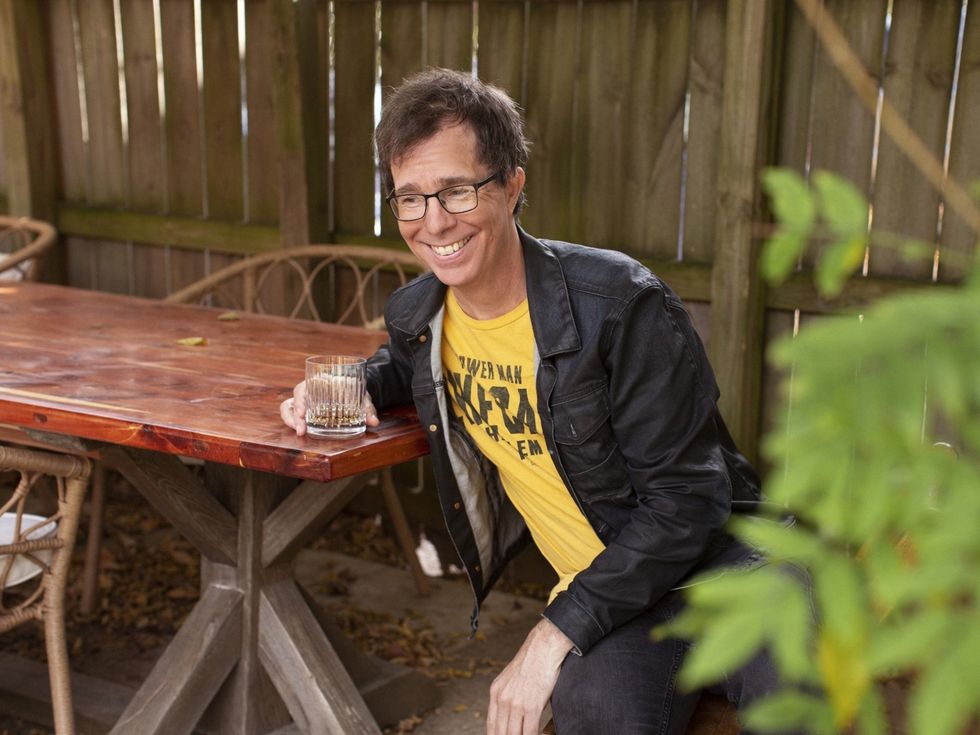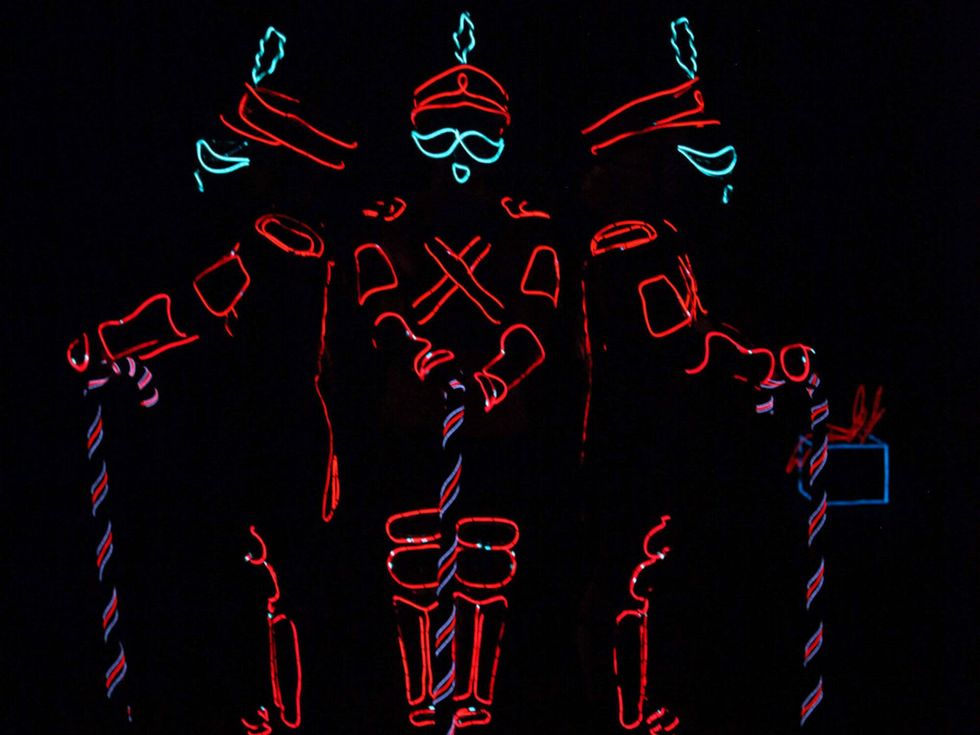The closer we get to Christmas, the more likely it is that weekend events will be almost all about the holidays. That's certainly the case this week, with 10 of the 14 celebrating in one way or another, whether it's theater, concerts, a parade, or a dance production. The four outliers include a concert from a great singer, a weekend of running, a well-known comedian, and a visit from a renowned dance company.
Below are the best ways to spend your free time this weekend. Want more options? Lucky for you, we have a much longer list of the city's best events.
Thursday, December 12
NTPA Community Theatre presents Scrooge the Musical!
In this timeless musical adaptation of Charles Dickens' A Christmas Carol, miserly Ebenezer Scrooge undergoes a profound experience of redemption over the course of a Christmas Eve night, after being visited by the ghost of his former partner Jacob Marley and the ghosts of Christmas past, present and future. The production runs through Sunday at the Courtyard Theater in Plano. A second week of performances will take place at the Willow Bend Center of the Arts, December 18-22.
Ben Folds in concert
Singer Ben Folds has created a body of genre-bending music that includes pop albums with Ben Folds Five, multiple solo albums, numerous collaborations, and a recently released holiday album called Sleigher. He comes to Dallas as part of his Paper Airplane Request Tour, in which fans will be invited to launch their song requests to the stage via paper airplanes. The concert takes place at Majestic Theatre.
Sara Evans in concert
Sara Evans ranks as one of the most-played female artists in country radio over the past two decades thanks to No. 1 songs like “No Place That Far,” “Suds In The Bucket, “A Real Fine Place To Start,” “Born to Fly,” and “A Little Bit Stronger.” She comes to town as part of her 21 Days of Christmas tour, and in support of her new album, Unbroke. She'll play at Texas Trust CU Theatre in Grand Prairie.
Friday, December 13
BMW Dallas Marathon Festival
The annual BMW Dallas Marathon Festival will feature a Half Marathon (running and walking), 50K Ultra Marathon, 5-Person Marathon Relay, the 2-Person Half Marathon Relay, Eight K, 5K (running and walking), 5K Team Challenge, Kid’s 100M Dash, Oncor Kid’s Race, and the Friday Night Lights Mile. Events will take place through Sunday throughout downtown Dallas.
The Dallas Opera presents Holiday Concert
The Dallas Opera's Holiday Concert will feature soprano Kathleen O’Mara and bass Keron Jackson singing a variety of holiday songs, including "You’re a Mean One, Mr. Grinch" and "Ave Maria." The concert takes place at National Shrine Cathedral of Our Lady of Guadalupe.
Improv Addison presents Jay Pharoah
Jay Pharoah is an actor and stand-up comedian who is best known for his wide array of uncanny celebrity impressions, including President Barack Obama, Will Smith, Denzel Washington, Stephen A. Smith, Kanye West, and Chris Tucker, all of which he showcased during his stint on Saturday Night Live. He'll perform five times through Sunday at Improv Addison.
TITAS/Dance Unbound presents Alonzo King LINES Ballet
Alonzo King LINES Ballet collaborates with noted composers, musicians, and visual artists from around the world to create performances that alter the way we look at ballet today. Alonzo King creates works that draw on a diverse set of deeply rooted cultural traditions, imbuing classical ballet with new expressive potential. The company will perform for one night only at Winspear Opera House.
Saturday, December 14
Lightwire Theater presents A Very Electric Christmas
Achieving nationwide acclaim on TV’s America’s Got Talent, Lightwire Theater combines the arts of puppetry, theater and dance with timeless holiday hits. The performance features moving-light characters, including toy soldiers, caroling worms, and performing poinsettias that magically appear out of complete darkness. They will perform twice on Saturday at Coppell Arts Center.
Rotary Clubs of Plano presents Plano Holiday Parade
The 2024 Plano Holiday Parade will feature Olympic Gold Medal gymnast and Plano resident Hezly Rivera as the Holiday Spirit Ambassador. The parade will highlight Plano’s high school marching bands, drill teams, and color guards alongside festive floats from local businesses, nonprofit organizations, and clubs, as well as an appearance from Santa Claus. The parade takes place through downtown Plano.
Irving Symphony Orchestra presents "Home for the Holidays"
The Irving Symphony Orchestra's "Home for the Holidays" concert will feature favorite carols performed by the ISO musicians, joined by tenor Charles Billingsley, the Irving Chorale, and an audience singalong. The concert takes place at Irving Arts Center.
A Merry Little Christmas Show with Ricki Derek
Ricki Derek is a crooner in the style of Frank Sinatra, Dean Martin, and Tony Bennett who has entertained audiences around Dallas-Fort Worth for many years. At his A Merry Little Christmas Show, Derek will be joined by the Ho, Ho, Ho Orchestra and some very special guests. The concert takes place at Granada Theater.
Derek Hough: Dance for the Holidays
Dance for the Holidays from celebrity dancer and Dancing with the Stars judge Derek Hough is a celebration of the most festive time of the year. Fans will get to see Hough and his cast of dancers bring holiday tunes to life through dance, from the well-sung classics to modern pop hits. The performance, taking place at Texas Trust CU Theatre, is choreographed by Napoleon and Tabitha Dumo, also known as NappyTabs.
Sunday, December 15
Robert Earl Keen: Lights, Camera, Christmas
Texas Country singer Robert Earl Keen's Lights, Camera, Christmas holiday tour includes non-traditional Christmas songs alongside perennial favorites. This year’s holiday tour, coming to House of Blues Dallas, will evoke memories of favorite’s scenes from films across decades.
Michael W. Smith in concert
Christian pop singer Michael W. Smith comes to Dallas as part of his Every Christmas tour, joined by special guest Riley Clemmons. Smith has released 15 original albums in his career, most recently 2020's Still, Vol. 1. He has also released four holiday albums, most recently The Spirit of Christmas in 2014. He'll perform at Majestic Theatre.
Photo by Patrick Ecclesine







